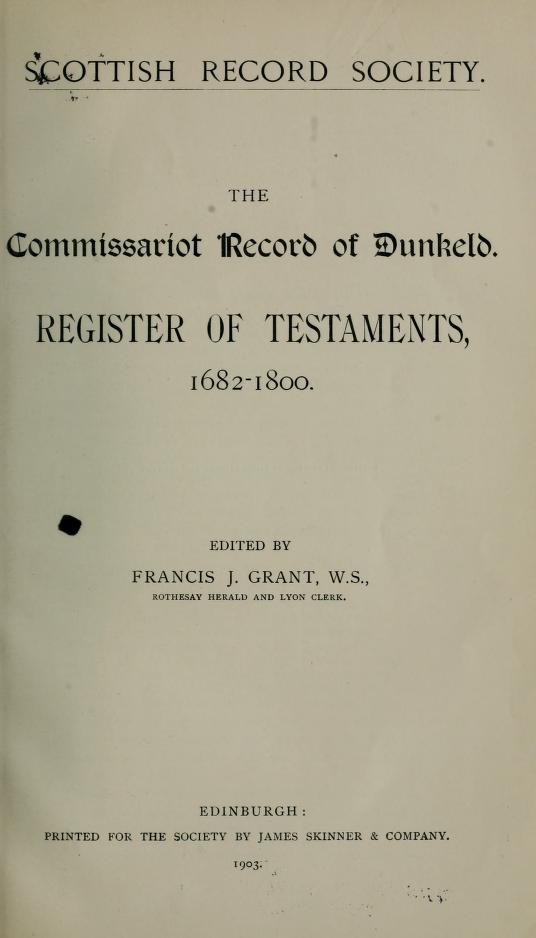
The following hyper-link is to the Scottish Record Office list of the Testaments and Inventories registered by the Commissary Court of Dunkeld, 1682-1800. Those with a 'T' are not available on-line at ScotlandsPeople, but some can be seen in Edinburgh, by prior appointment.
The Commissariot Record of Dunkeld, Register of Testaments, 1682-1800
More than 50 Testaments from the Blair Atholl area have now been transcribed, with the names of those people who are mentioned indexed for each decade. Each name identifies where they were living, and links to a transcription of that particular Testament.
Decades: 1710s; 1720s; 1730s; 1740s; 1750s; 1760s; 1770s;
-
Notes
The Testaments are a rich source of information as many mention the relatives of the deceased, such as: relict
(widow); sister germain (sister of the same parents); children; nephews; next of kin executors. Some contain
copies of Latter Wills showing the beneficiaries. Others record 'roups' (auctions) of goods and the prices paid
for them. Taking into account that the relatives might have removed many useful items already, it still gives a
fair impression of what a person might own.
For the most part, these documents record what was resting (owing) to the deceased. In these days livestock,
dairy produce, grain and woven cloth tended to be sold at the end of summer so, for most of the year, there was
a shortage of silver coinage. To overcoming this problem a person could give a 'bill' (basically an IOU) which
would state the amount in Scots merks, Scots pounds or pounds Sterling, and the date when it would be payable
(e.g. Martinmass). The bill could be paid off by instalments, as coins became available, and the note was
amended on the back. When the bill was eventually paid off, it was given up (returned) and presumably destroyed.
However, it was not unusual for such bills to be used as currency in their own right, by being endorsed and
passed to a new owner.
The absence of banks meant that it was difficult to safeguard large sums of money. One way was to give the money
to a trust-worthy person in exchange for a bond to be redeemed in a few years time. Originally, interest was
not supposed to be paid on loans, so land had been given as security (i.e. wadsett), and the interest was paid
as 'annual rent', with the ampersand symbol being used to signify annual.
-